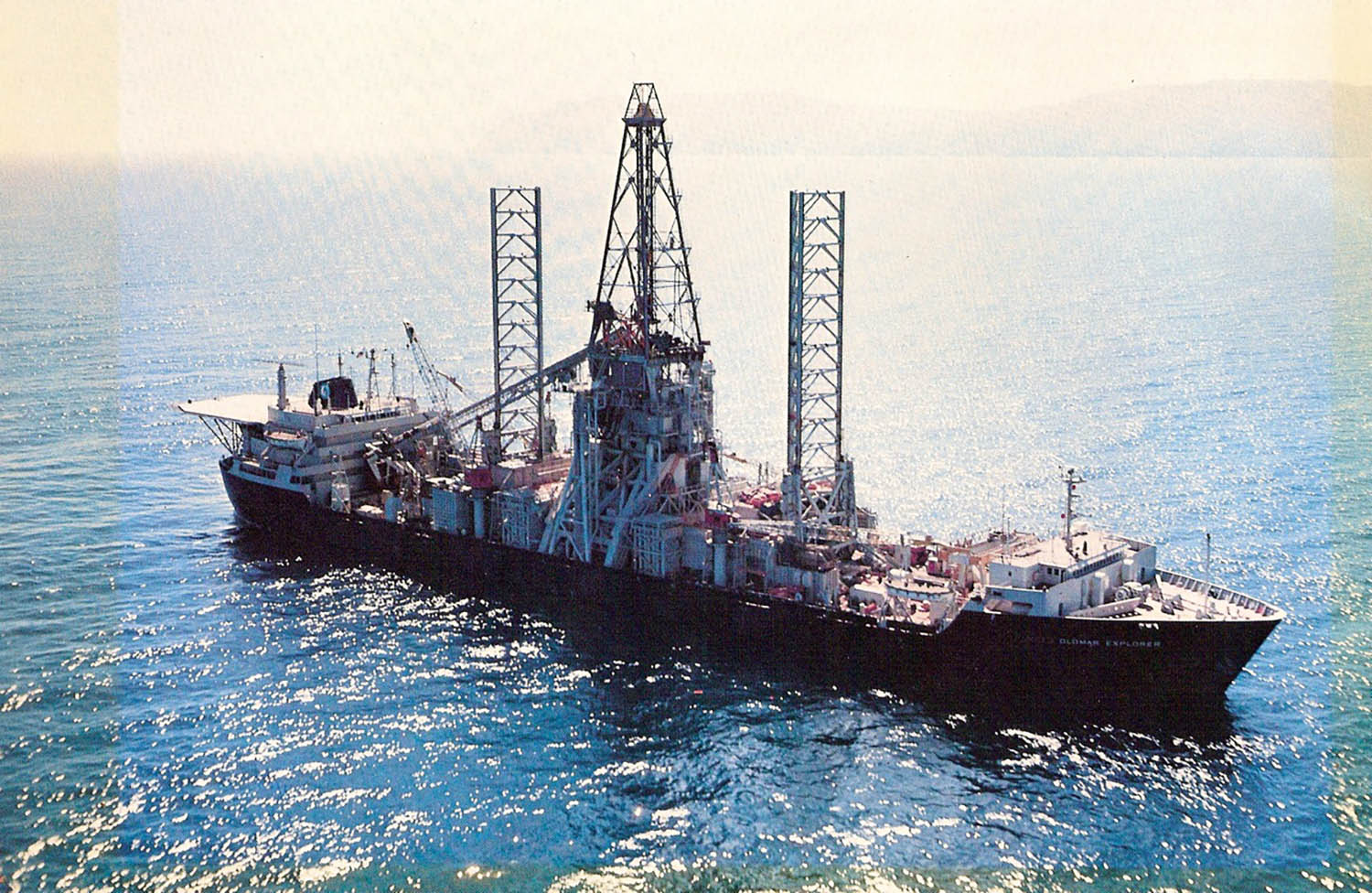ECU history professor advises for Netflix series ‘Spy Ops’
East Carolina University’s faculty showcase and share their expertise in unique and intriguing ways both on and off campus. Dr. Todd Bennett, associate professor and director of graduate studies for the Thomas Harriot College of Arts and Sciences Department of History, recently had the opportunity to impart his knowledge of American history, specifically intelligence, to a broad audience in an episode of Netflix’s “Spy Ops.”

Glomar Explorer, owned by reclusive billionaire Howard Hughes, was an advanced deep-sea mining vessel used to recover part of a sunken Soviet submarine off the floor of the Pacific Ocean in 1974. (Contributed photos)
“Spy Ops” is a documentary series dramatizing major moments in intelligence history. Bennett was interviewed for episode eight, titled “Project Azorian,” which explored efforts by the United States intelligence community to raise a sunken Soviet submarine from the depths of the Pacific Ocean in the 1970s.
“I have some knowledge about the program, thanks to my book, ‘Neither Confirm nor Deny: How the Glomar Mission Shielded the CIA from Transparency,’” said Bennett, whose book about the mission marks a key moment in the history of transparency, government secrecy and its consequences.
“Briefly, a nuclear-armed Soviet sub went down in the Pacific Ocean in 1968. The U.S., having discovered its location, launched a clandestine effort to raise it, primarily because it contained cryptographic material,” Bennett said. “Codenamed Azorian, the program was extremely ambitious — some likened it to an underwater moonshot — involving cutting-edge technology, including an advanced surface ship, the Glomar Explorer, equipped with the equivalent of a giant claw. A 1974 recovery attempt was partially successful, but due to an unauthorized leak, the program ended up in the newspapers in 1975. Still, the program remained officially unacknowledged for decades.”
Bennett, whose expertise includes modern American history, especially foreign relations and intelligence history, said that intelligence collection is a critical part of national security policy.
“Nations collect intelligence to gauge the military and other capabilities of their adversaries to respond or set policy accordingly,” he said.
“Speaking as the history department’s graduate director, I hope the takeaway — for prospective graduate students, in particular — is that studying history at ECU can serve as a great launching pad,” Bennett said, “and that faculty and students in the department are pursuing cutting-edge research that can have a big impact, be it on Netflix, in the classroom or in the field.”
Prior to joining the faculty of ECU, Bennett was a historian at the U.S. Department of State, where he edited the volume of the publication, Foreign Relations of the United States, which includes declassified records documenting the Glomar incident. Read more about Bennett and his research on his web page.

Dr. Todd Bennett, associate professor of history
MORE BLOGS